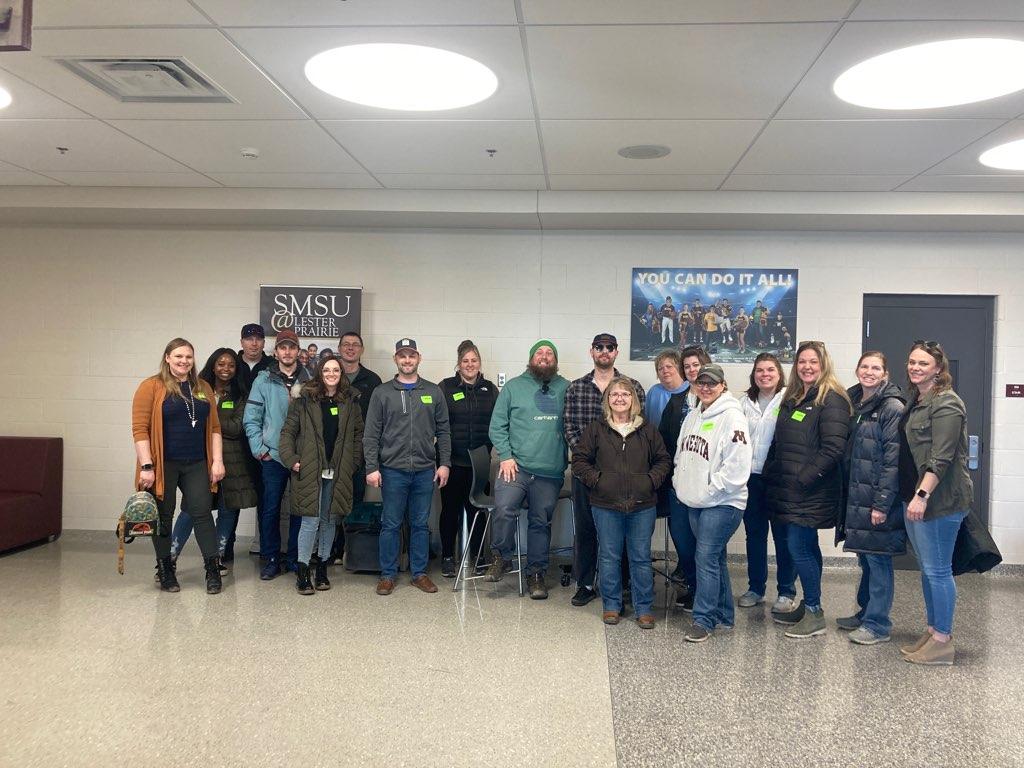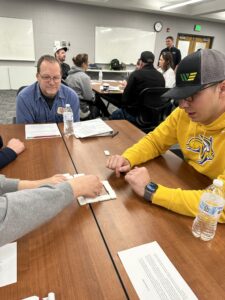Rural leadership is an often overlooked yet essential component for rural communities. Investing in rural leadership development is key to addressing the unique challenges faced by rural areas. Successful and flourishing rural communities require strong leadership. With an aging population, limited resources, and the need to prepare the youth for their future, rural leaders play a vital role in the growth of their communities.
Investing in Rural Leadership is Investing in our Future
Defining Rural Leadership
We know it’s important, but what really is rural leadership? It is the leadership of less populated areas further from more urban cities or spaces. This form of leadership originates in smaller communities based off of a common interest. In communities with less resources, leaders often emerge to resolve a problem, or conflict.
Leadership is important in any area, but rural leaders face a unique set of challenges due to their limited population and resources. Rural leaders must think ahead, adapt, and build strong relationships to ensure a vibrant future for their communities. Rural leaders must also possess the ability to lead their rural communities and to affect change in their area. They must have a deep understanding of the social, political, economic, and environmental issues facing their communities. Similarly, they must be able to lead solutions and initiatives to address the specific outcomes they are working on. They should also possess the skills to work with diverse individuals and groups that may influence their ability to lead their community in a positive way. Rural leaders should also strive to build strong relationships with other rural leaders and organizations to collaborate on improving and developing rural communities.
While these skills may seem like they require a very specific person, the biggest skill that a rural leader must possess is a passion to work toward a positive change.
The Importance of Rural Leaders
Rural leaders are an important part of a community’s development. Leaders set the pace and guide their communities toward a brighter future. While each rural leader’s role will differ in how they are involved, without someone to lead positive change things remain stagnant.
If you look closely, your community is likely run by many talented, passionate, and involved leaders. They may be involved in the city council, church board, a board of directors for a non-profit organization, volunteers at events, or the people out making a difference in their own way. Leaders make the world go round, but in rural communities, they are a sheer requirement for any sort of progression.
Ultimately, rural leadership is essential for sustainable long-term development in rural areas – it is what creates the future of rural life and provide a better quality of life for local and rural populations.
Identifying Rural Leaders
Identifying rural leaders can be a challenge; however, the right leader makes all the difference in outcomes.
It might be easy to get caught up in the specific traits that seem to be required as a leader, but the desire to inspire, passion, and gumption are the most important skills required in being or becoming a leader.
While consideration should be given to the person’s qualifications and experience, the ability to mobilize, inspire, and unify the community is likely to foster greater change. A leader needs to be able to inspire and motivate people by generating enthusiasm, setting achievable objectives, and following through. They should also be able to build trust and strengthen bonds within the community. A leader can be anyone who desires to inspire change, they don’t have to be a CEO or senior level executive to lead. This is why McLeod For Tomorrow helps inspire leaders and grow their strengths so they can work together with their communities, organizations, and employers to lead in a way that suits their goals.
Investing In Rural Leaders
Investing in rural leadership development is essential to grow and sustain a successful rural community. There are various ways in which organizations and governments can invest in rural leadership development and create a positive impact on rural areas. McLeod For Tomorrow is one of those ways. We take leaders in the community, teach them about themselves, connect them with other leaders, and inspire them to be involved with the community. This type of program helps bridge the gap between knowledge and experience, enabling potential rural leaders to understand the issues affecting rural areas and become better equipped to face them.
Leadership is an essential component of a flourishing rural community. Investing in rural leadership increases the (often scarce) resources available in rural areas. The success of a rural community strongly depends on the quality of its leadership. Investing in rural leadership development is essential in fostering the continued growth and development of rural areas.




